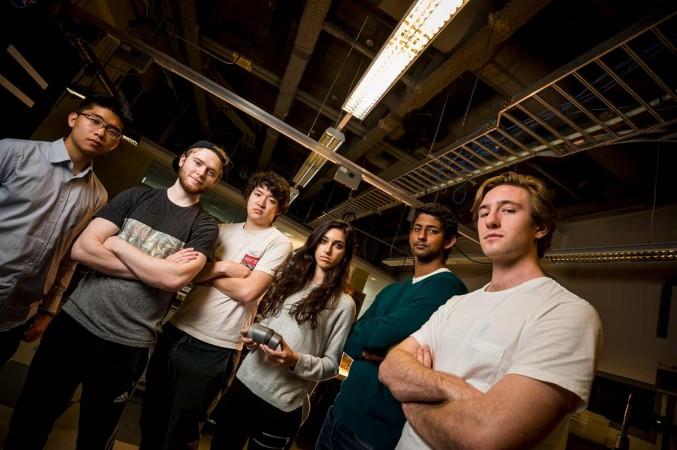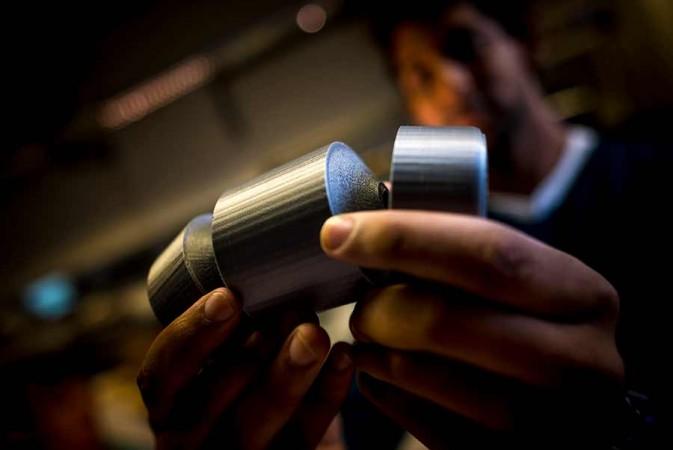
An interesting competition -- Lab2Moon -- is being conducted by Indian startup TeamIndus to find out if beer can be brewed on moon. The competition is part of the Google Lunar XPRIZE challenge.
Also Read: A massive gravitational 'patch' has been found on Venus!
A team of engineering students from the University of California (UC), San Diego, is one of the four teams that landed a contract that permits them to send a spacecraft to the moon by December 28, 2017.
The Google Lunar XPRIZE challenge is a $30 million competition. Contestants must land a spacecraft on the lunar surface, cover a distance of 500 metres and transmit HD images and videos back to Earth.
The main aim of the Lab2Moon competition is to analyse the behaviour of yeast during the brewing of beer.
A team of undergraduates called 'Team Original Gravity' from the Jacobs School of Engineering is one of the top 25 teams selected from a total of 3,000 teams to compete for a slot aboard the TeamIndus spacecraft. If they win, they will be the pioneers to brew beer in space.
"The idea started out with a few laughs amongst a group of friends," said Neeki Ashari, a fifth year bioengineering student at UC San Diego and the team's PR and Operations Lead.
"We all appreciate the craft of beer, and some of us own our own home-brewing kits. When we heard that there was an opportunity to design an experiment that would go up on India's moonlander, we thought we could combine our hobby with the competition by focusing on the viability of yeast in outer space," Ashari added.
A unique device has been made by the team in order to accomplish this mission.

The process of carbonation and fermentation are usually carried out separately, but the team has chosen to combine them in order to eradicate the need of releasing the CO2 collected. This would prevent issues related to safety, sanitation from arising and also avoids the probability of over-pressurisation in case of system failure.
The last step is about testing the viability of fermentation and yeast which will be done using pressure instead of density measurements which is used on Earth. The reason behind it is that gravity is used by density measurements.
"Converting the pressure build up to fermentation progress is straightforward, as long as volume and original gravity—specific gravity before fermentation, hence our name—are known prior to the experiment," Han Ling, a fifth year bioengineering undergraduate and the team's brewing lead, was quoted as saying by UC San Diego News Center.
An international jury will assess the result of this competition once the partakers fly down to Bangalore, India, to showcase their final model.
TeamIndus is one of the first four teams in the world which won $1 million milestone prize for simulating its spacecraft's landing technology concept. The aim of TeamIndus is to transform the human species into a habitable multi-planetary species.
"The yeast study is among the coolest experiments to be performed on the lunar surface, and I am sure they are one of the top contenders to win the Lab2Moon competition. Original Gravity is one of the most hardworking teams and very dedicated to their project," said Siddhesh Naik, TeamIndus Ninja and mentor to Original Gravity.
The UC San Diego's Team Original Gravity will be the first ones to brew beer in outer space in a soda can-sized device if they get selected.
"Our canister is designed based on actual fermenters," said Srivaths Kaylan, a fourth year nanoengineering major and mechanical lead for the team.
"It contains three compartments—the top will be filled with the unfermented beer, and the second will contain the yeast. When the rover lands on the moon with our experiment, a valve will open between the two compartments, allowing the two to mix. When the yeast has done its job, a second valve opens and the yeast sink to the bottom and separate from the now fermented beer," Kaylan added.
UC San Diego students Johnny Koo, Jared Buchanan, Sebastian Kaser, Clarissa Hoffman, Seth Choi, Jeff Cash, and Tavish Traut are the other members of Team Original Gravity.
When referring to the possibility of colonising Mars, Ashari remarked, "It's going to happen, and soon."














